#season 15
Text

4K notes
·
View notes
Text
And that's a wrap on Ninjago.
I wasn't sure what to expect when I first started watching this show. I had the barest knowledge going in. I'd seen clips over the years, but that was really about it.
I'm really glad I watched it. It was a lot of fun. I laughed, I cried, I screamed, I scared my poor dog more times than I can count. Who knew a show about some silly little LEGOs could give you so many feels?
Thank you all so much for joining me on this.
So, what's next after this? There's still a little over a day left on my poll. There's a clear front winner, but I won't declare anything until it's done. But I'm thinking starting the new show on Monday? Y'all are more than welcome to stick around and watch me react to the next show before I dive in to Dragons Rising. It should be just as much fun (and painful, I'm told).
So, I'll see y'all again soon!
(I'll be posting my correct and incorrect predictions tomorrow and responding to everyone then. XOXOXO -Icy💜)
153 notes
·
View notes
Text
If not dating, why breakup so loud?
IF NOT DATING, WHY BREAKUP SO LOUD!?!?!?!
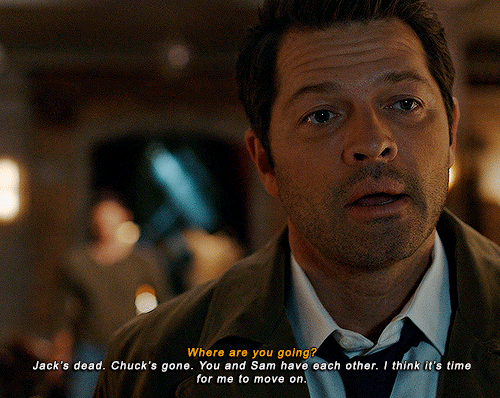
#spn#supernatural#castiel#destiel#deancas#bi dean#dean#misha collins#jensen ackles#cas dean#season 15 supernatural#season 15#spn shitposts
215 notes
·
View notes
Text

He's literally one of my main kins
#adam milligan#misha collins#supernatural#spn#jensen ackles#season 15#jared padalecki#jake abel#archangel michael#sam winchester#dean winchester#midam#midam spn#spn fanart#spn cast
90 notes
·
View notes
Note
I know its beens awhile but what did you think of S15 as a whole?
As a whole I think season 15 was an above-average season due to below-average execution and ended with a stellar series finale that added rewatch value not just for season 15 but also all of 15 seasons.
Season 15 started and ended with callbacks to previous seasons; from season 1's woman in white and Sam's goal of returning to a normal life, to season 5's Dean's time in hell as Alastair's apprentice and bringing closure to Adam Milligan, to season 8's endgames for Sam and Dean.
The first half of the season 15 was about free will vs determinism, with Sam representing the former and Dean representing the latter. Sam and Dean’s confrontation with God parallels how they've reacted to family and authority their entire lives: Sam challenged God’s Divine decree over His Creation while Dean accused God of abandoning His Creation. When Abraham spoke with his heart and mind to God over His plan to destroy Sodom & Gomorrah, it led to Abraham transcending himself, leading the way for God, and becoming the father of faith. Metaphorically it's all about lessons in honest, meaningful relationships with our fellow human beings. People often suppress their true selves and principles for the sake of avoiding conflict instead of taking the relationship a step further into a place of sincerity. From season 11 to 14, Sam and Dean spoke their hearts and minds to God and the brothers' relationship became at its strongest, never wavering even when occasional arguments sprouts up because they were honest with each other.
Sam and God became connected through Sam's hope which manifested in their identical wounds. Secular-based hope is about anticipating something good to come in the future. Sam has hope in a better future, so Chuck showed him a bleak future to make his lose that hope. Once Sam lost his hope, God leaves. That’s pretty much what happens to people in real life, when they lose hope, they feel there is no God or God abandoned them. Another physical manifestation of a bleak future is Dean's old friend who retired from hunting, Lee, who became so corrupted that Dean is forced to kill him.
The return of Sam and Dean's half-brother, Adam, brings welcome closure. Adam is not out for revenge as he acknowledged his own culpability for agreeing to vessel-ship in the first place. Him and Michael only having each other for 10 years in the Cage led to their codependent-symbiotic-ish relationship that parallels Sam and Dean to some extent.
I like to call the second half of season 15 the "Dean redemption tour" where side characters were used to address Dean's unresolved issues in order for him to be good enough for Sam in their eternal afterlife. Normally whenever Dean interacted with side characters it is about the side characters, not Dean (see example here and here). But when the formula is reversed, it becomes a bit disjointed, and the audience picked up on it. The final redemption act target Dean's anger issues that both Amara and Chuck discussed.
Chuck: This is my ending. My real ending.
Very next scene: *Dean pulls a gun on Sam*
Dean’s been so obsessed with having free will that he’s actually following Chuck’s writing. As usual Sam broke through to Dean, in effect breaking Chuck’s influence. Then a very mad mad Chuck shows up.
Chuck: “Are you kidding me? After all that, you did it again!”
Then 15x18 happened. Ignoring the hilarity of that scene, the speech was supposed to remind the general audience that Dean is A HERO before he dies two episodes later. By 15x19, free will vs determinism comes to a conclusion. Michael and Lucifer betrayed the Winchesters and succumb to determinism, fulfilling their destiny to destroy each other. Sam and Dean manipulated Michael to lure Chuck into a trap to replace him with a new God, Jack. Chuck is left only with human frailties and for the first time Chuck has no idea what happens next, bringing the free will theme to a full circle.
Due to interactions with Sam, Rowena became the new queen of Hell while Jack becomes the new God of Heaven. Jack promises Sam that He will have a hands-off approach and people don’t need to pray or sacrifice to Him. Jack’s perception of humanity is distilled down to, “When people have to be their best, they can be.”
Before the story ends, the protagonist is supposed to accomplish their primary goal that had kept them driven and move the story forward. Sam’s goal was attaining normal life, it was never about eradicating monsters to extinction or avenging his mother’s death. In fiction it always seems like the main character want many things, but there is always a primary goal. Harry Potter gets dragged into many subplots such as conflicts with his best friends, romantic misfires, and incidents with secondary characters, however his main goal was always to defeat Voldemort and that's what the audience is holding out to see. Sam Winchester’s journey is flipped from Harry Potter’s; Sam gets dragged into many subplots of saving the world, defeating the Big Baddies, and conflicts with his brother, however his main goal was always to have a chance at a normal life. But this can't happen while Dean is still alive.
Dean has everything he wanted: Sam and hunting. Dean is a complete person; he doesn’t need anything else. But Sam had given up just about everything so that Dean wouldn’t be alone. 15x16 reminded the audience that Sam wanted out of the hunting life since he was a child. Sure, Sam is very good at his job and even became a leader, but they always made sure to show that Sam doesn’t have passion for the family business other than saving people’s lives. Claire Novak shows way more enthusiasm for the job. But Dean would never retire from the hunting life. Even when Michael gave Dean a fantasy life, Dean still conjured up monsters so he can fight and kill them. As long as Dean is alive, Sam will never be free to pursue a normal life. Think back to Dean's speech in season 8 telling Sam to pursue his normal life only after Dean dies with a gun in his hand and a smile on his face.
The pivotal barn scene in the 15x20 finale was genius, bringing the series to full circle with callback to the pilot, fleshing it out, adding backstory to Dean’s pov that brings his fear, need, relief, and love to stark relief. It hurt like hell, and at the same time, cathartic because Dean was honest. The way Dean said, “Come here. Let me look at you. There he is!” That’s Dean in dad mode, the parental figure to Sam. The show reminded the audience in 15x18 that Dean raised his little brother. Still in dad mode, Dean then tells Sam that he is proud of him. It’s what every son wants to hear from their dad.

Dean then goes into brother mode and tells Sam he admires his strength even when they were children. Sam’s strength is such that Dean was afraid that Sam doesn’t need him. Fearing rejection, he stood outside of Sam’s dorm for hours before finally going to Sam because it’s always been Sam and Dean, and Dean can’t comprehend if he didn’t have Sam.
From there Dean gives Sam his blessing to keep living his life. “I love you so much, my baby brother”. Sam’s reaction was pure and raw, he has always been honest about his wants and needs but craves Dean’s approval to pursue them, and now he has it. Sam’s faith in Dean went answered with Dean saying how proud he is of Sam, how much he admired Sam’s strength so that Sam knows he is strong enough to go on living without Dean.
Another reason why the barn scene is genius is the pilot callback sets up Sam and Dean’s reunion in New Heaven as pilot 2.0. From there they will build their relationship just as Sam and Dean. They are at peace without monsters disrupting their lives, without vindictive angels disrupting their afterlives, and without childhood angsts weighing them down. They have both freedom and peace.
This applies to all of the hunters. Jack’s New Heaven is like a retirement home for hunters where they can enjoy their peace and socialize with their friends and loved ones and even upgrade themselves to the people they were meant to be on earth.
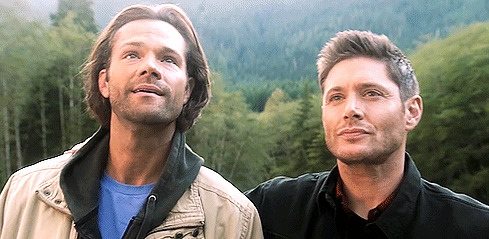
62 notes
·
View notes
Text


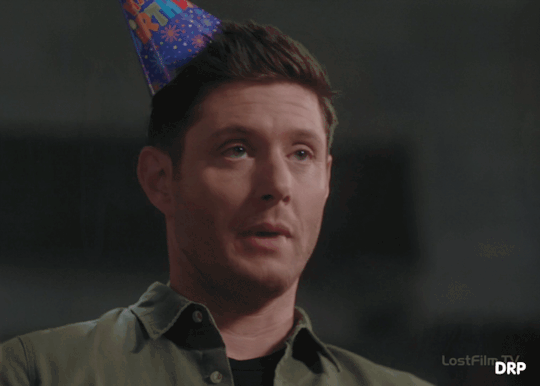
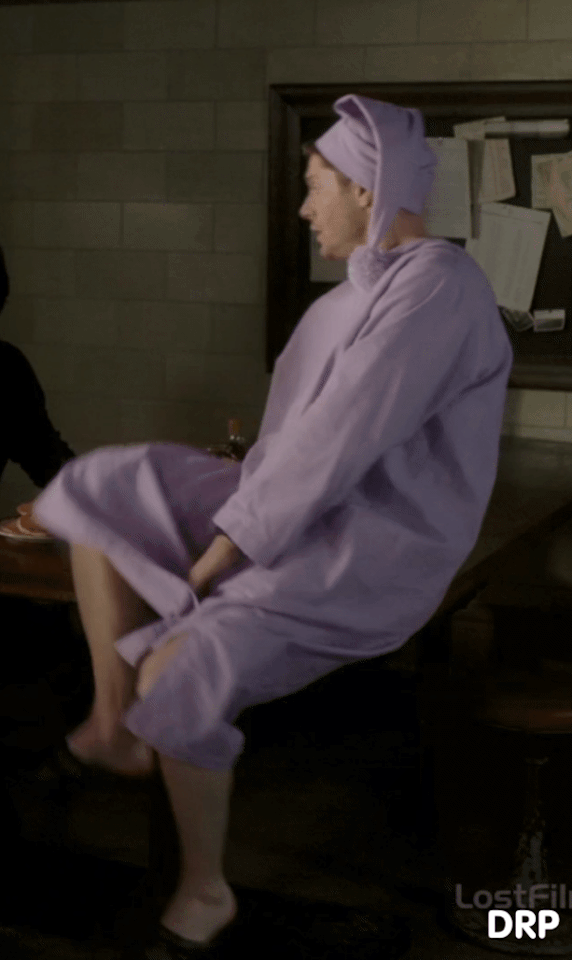
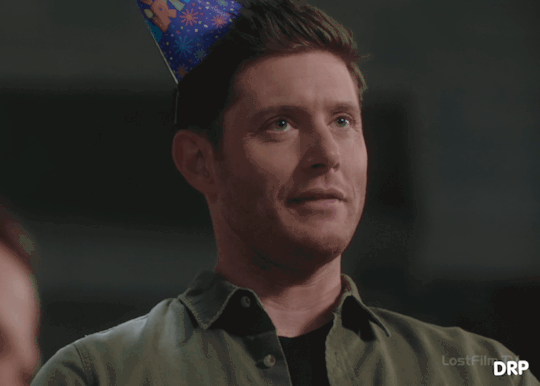
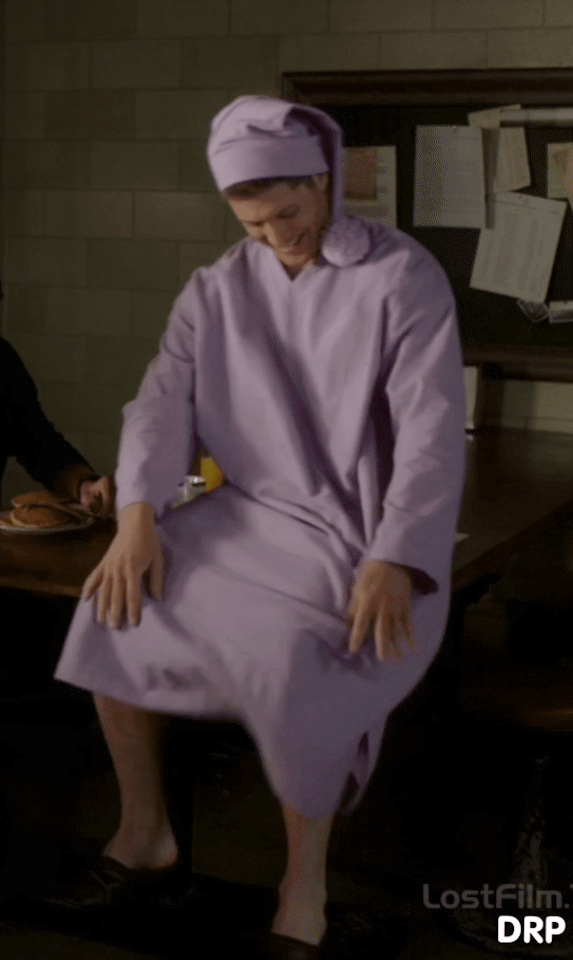
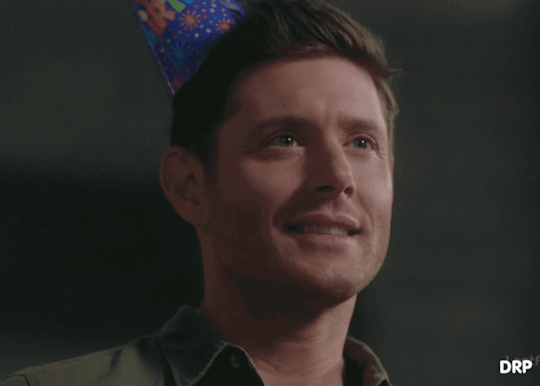

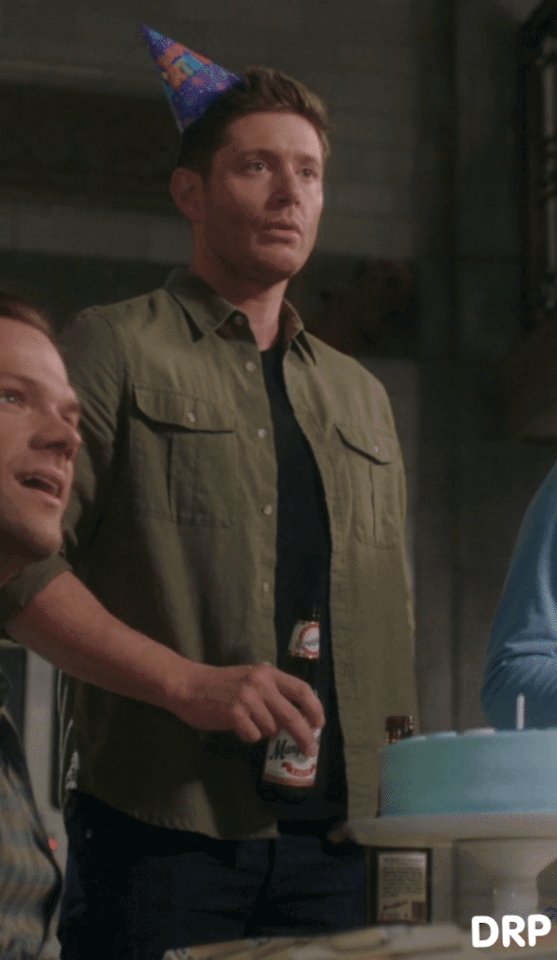
💕🥳 Happy 45th Birthday to the one and only Dean Winchester!
I love you so much 😘💕
🍰 Tag list: @avanatural @undisputedchick2 @jranutter @fortheloveof-jackles @kazsrm67 @muchamusedaboutnothing @breath-of-snow-and-ashes @bluedragonflylady @mrsjenniferwinchester @unabashed-lover-of-fictional-men 🥧
#happy birthday dean winchester!#jensen ackles#dean winchester#supernatural#season 15#spn 15x14#jensen ackles edit#jensen ackles gifs#dean winchester edit#dean winchester gifs#deansraspberrypie gifs#i love you so much ❤#drp
96 notes
·
View notes
Text
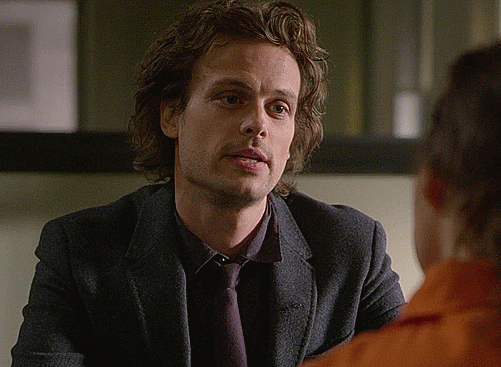

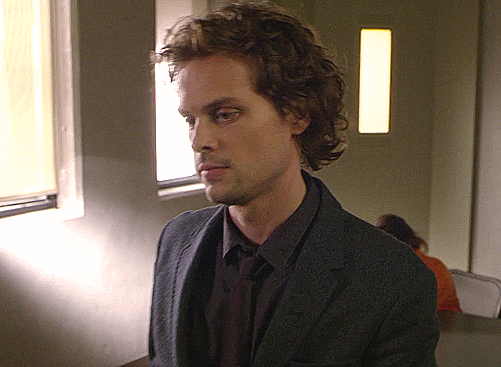
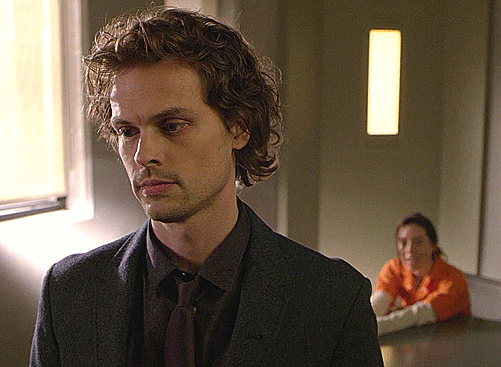
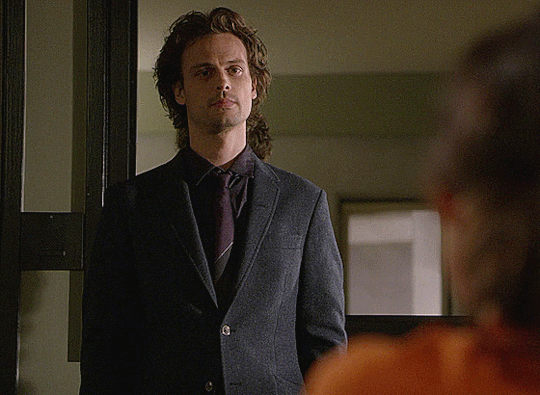
15.06 Part 2
116 notes
·
View notes
Text
Watching season 15 is so stressful. The number goes up every episode getting closer to 18 😭 please let me out
#THERE CANT ONLY BE THREE EPISODES LEFT WITH HIM#LET HIM BE HAPPY THIS TIME#PLEASE#PLEASE GOD#I CANT TAKE IT#LET ME OUT#LET HIM OUT OF THE NARRATIVE#LET THEM OUTTTTTTT#destiel#supernatural#spn#dean winchester#castiel#season 15#spn s15e15
37 notes
·
View notes
Text
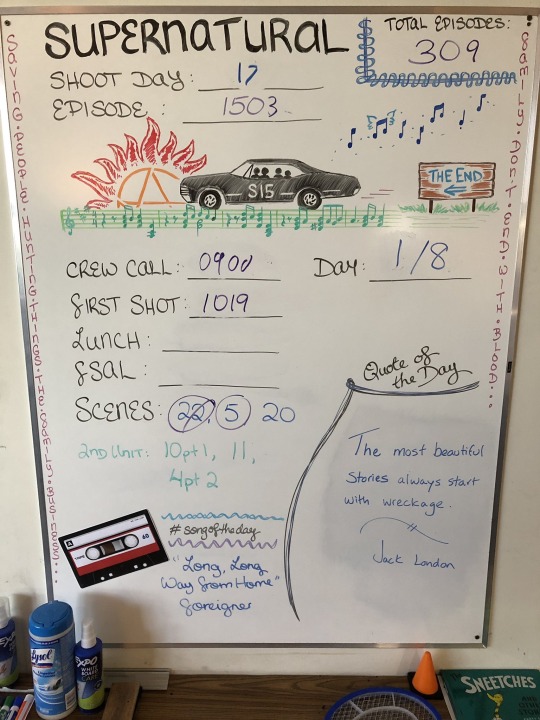

82 notes
·
View notes
Text
Doesn’t it look like he was about to put his hand there

But he just came short of doing it? Like he kept moving it closer to Mac’s arm

And Dennis was touching him HERE. In the first gif it was “just let me” and in the second it was “listen to me” theres just something so similar to these scenes and it’s driving me crazy. The way that is is only 1 season apart.
#can’t stop talking about the second gif#this was in my drafts#I apologize if it’s outdated or out of your mind I keep forgetting I can post#season 15#season 16#mac mcdonald#iasip#dennis reynolds#it's always sunny in philadelphia#macdennis#its always sunny
135 notes
·
View notes
Text
WHY WAS THE EMPTY THE SEASON 15 TITLE CARD.

363 notes
·
View notes
Text
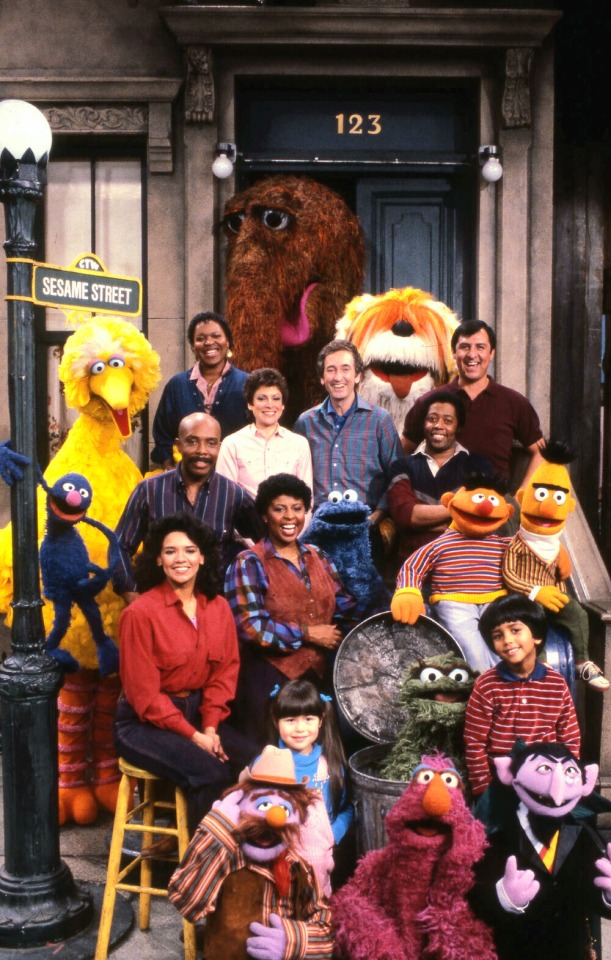
Sesame Street, Season 15 Cast 1984
81 notes
·
View notes
Text
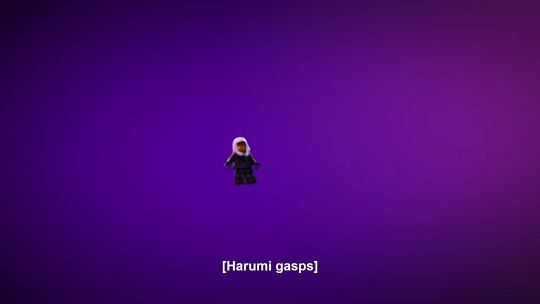
As someone who loves the color purple, I want to live in that space
148 notes
·
View notes
Text
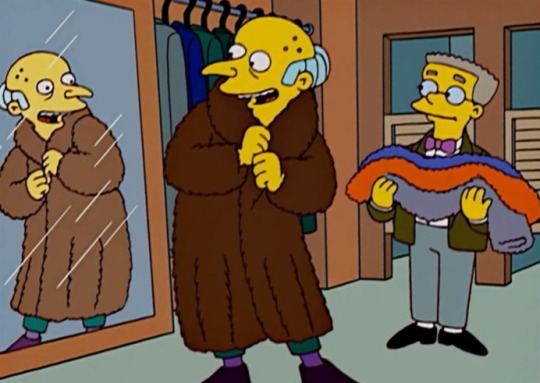
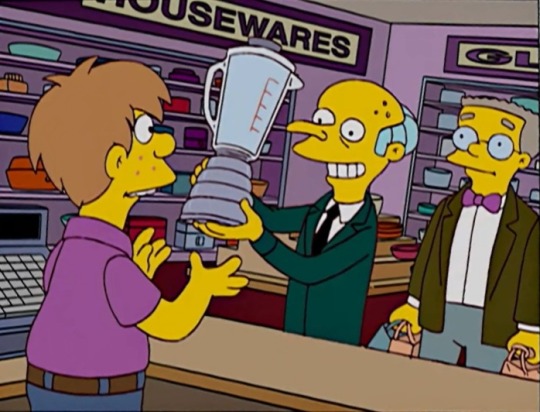
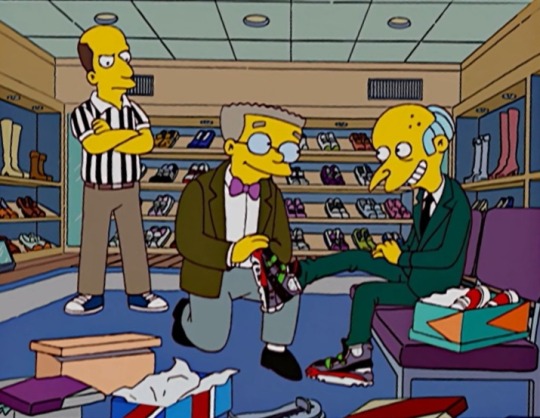

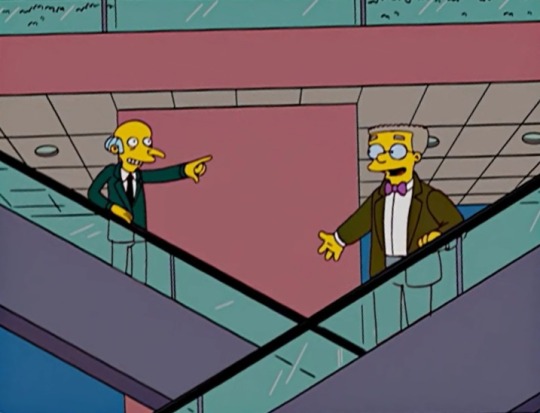
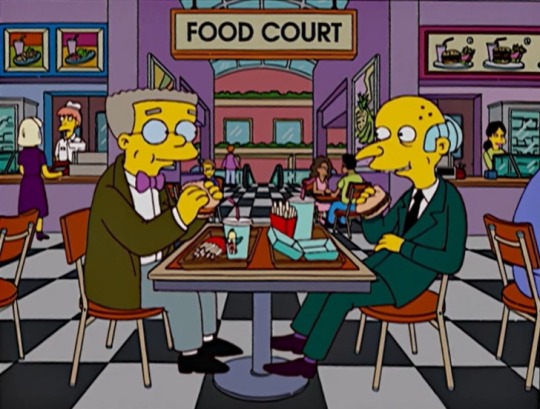


Shopping day with Burns and Smithers
97 notes
·
View notes
Text
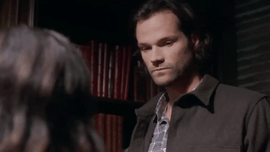
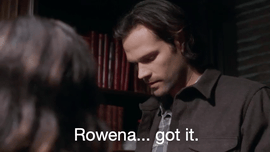


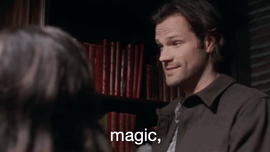
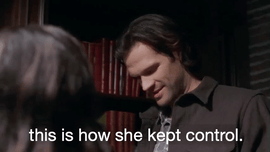
#spn#spnedit#supernatural#supernaturaledit#jaredpadaleckiedit#shoshannasternedit#sam winchester#eileen leahy#samwena#rowena macleod#(not pictured)#gif warning#mine#season 15
38 notes
·
View notes
Text
the structure, the "explosion", change and authenticity: a dissection of season 15
As usual I'm prefacing this post by saying these are my personal ramblings about always sunny meta so if you don't like to see that, then please move along.
When season 15 ended, I didn't end up analyzing it because my fixation had ended as well, so that's what I wanna do here, but in order to do that I have to touch on some themes that were heavily relevant in previous seasons but especially season 14.
I also want to properly explain why I've been calling season 14 "the last classic season of sunny", and why I think of season 15 as "a transitional season".
It seems weird, but I wanna start by talking about the season 13 episode, The Gang Escapes.
I've done a quick rewatch of s14 and 15 and the more I did that, the more I started to see Escapes like the predecessor for a lot of it.
So, in it, the gang is playing a game of escape rooms. They are trapped inside of Mac and Dennis' apartment, with only Dee knowing how to get out having done it before. Despite this, she is locked out, and is unable to help them. The boys separate and wrestle for a pair of heartshaped lock and key, and in the end, when they finally settle on how to open it, they discover that inside it says "And so the game begins".
The lock contains a ton of instructions on what to do next, but the gang quickly realizes they have run out of time and are unable to do them all, only for Dee to take the fall allowing them to win albeit in an unconventional way.
This episode reads to me like a cautionary tale on the fate of sunny.
Spending so much time on deciding how to do something or whether they should at all, that when they finally do it, they don't have the time to properly explore the choices they've made. As an example, this comes back with the concept of the seeds. In general, this is always touched upon whenever "imminent death" is explored, because it doesn't allow them more time to continue. This is often paired with a need to "go crazy/explode" by the end.
As a result, feeling constrained inside something and needing to get out before it's too late.
I'll elaborate more on all of this as we walk through s14/15, all the ways in which these themes come back, but for now I want to say that to me, this is likely how RCG has felt writing sunny sometimes: feeling too constrained/boxed inside the way they have always written it, that didn't allow them to branch out and explore the stuff they really wanted to "until the end", which in a way made them feel like sunny itself was the problem and made them consider ending it (aka cutting the head because the hair is a lie) to explore the stuff that interested them, rather than just... doing it while they have time, and being more loose with writing it in general (like how Gus said, the bible is a guidepost, interpretations can change over time).
As such, Escapes is an incomplete view on the situation, a negative one, it shows us what would happen if nothing gave in. Which isn't what happened in the end, but it's still important to keep in mind to read the rest of it.
This is, to me, why they even asked for four seasons in the first place. To have the time to properly explore all the things they wanted to touch on, with their new plan.
I'm gonna try to dissect every episode singularly (the ones I think are relevant anyway) and point out the connection in themes and what I think it all means. I tried to stay brief, believe me.
All in all, some of the themes I've found are as follows: the structure, death/catastrophe, running out of time/losing something (even disappointing an audience), change, and choices. They all apply to writing sunny.
Season 14
This season brings back a lot of stuff from past sunny. It seems s16 will do the same, but back when s14 was just airing, I remember this felt odd to me. Chokes is a direct continuation of dines out (with it being charlie and frank's anniversary dinner) and also calls back to mac's mom burns her house down and dennis system (with the whole poisoning someone so they can depend on you and nursing them back to health etc), poppins comes back, jackie denardo comes back (storm of the century, which also references bryan o' bryen), thundergun comes back, dee day (which is a continuation to mac day), global warming references Spies like US (the fish factory dudes), the waiter comes back... and so on. It felt like they were honoring the past.
But the reason why I consider it the last season of classic sunny, is because it's the one before change strikes. Many episodes seem to place us in front of an inescapable choice that leads to disaster. Some don't even offer a choice, just speak of imminent death.
The Gang Gets Romantic
Breaking this episode down, it's important because it introduces the whole concept of the "structure". A guideline, if you will, that the characters can either follow or stray away from. Throughout the two seasons we will see it redefined constantly, so it's important to understand what it is.
We are given two mirroring plotlines making use of this (romcom) structure. Frank and Charlie follow it pretty closely, and in the end they are rewarded with a romcom-y ending. Mac and Dennis stray from it, because they don't realize that the tropes are applying to the two of them, and in the end, their plans fail. This is actually counter to most other examples of structure that will be written later, and it shows us something important, which is that the structure can work if applied correctly and when appropriate.
So is the structure good or bad? Should it be followed? And what is it?
To me, the structure is a guide. It can aid you find what works on average, but it shouldn't lock you in. Exactly like structure in writing.
But it doesn't matter how you call it: the structure, the algorithm, god's plan, the bible, the base, the four walls encasing you, tradition; it's about something that gives you a foundation, but that you can branch out of, if needed. If your feelings tell you you should.
Multiple episodes will come to grips with this concept. Trying to run from it entirely, or embrace it to the point of almost doing things they don't want.
This is RCG's own struggle with understanding how to write sunny, and what sunny even is, hence why the main theme of season 15 is identity. How much can you stray from your core structure and still be yourself? How much before you don't even like where you're going? What defines you?
And in fact, a crucial theme in TGGR is falling back in love with something.
Pushing it away at first because you think you can get better than that or because you're bored of it, only in its absence to realize that it was already the perfect match. This is the charlie+frank/alexi+nikki plot (we'll be back in one year... covid aside, this is about the show returning and not ending), but it reflects season 15 in general (when you love someone, you can't bear to leave them behind).
Finally, "you think they're gonna give us a bad review?", hinting at the fear of how others will react.
Thundergun 4: Maximum Cool
The gang is selected to judge the sequel of a franchise they are big fans of. However, upon discovering the many changes applied to it (they're rebooting the franchise), they are disappointed and angered. In the end, Dee comes up with the plan that forces the franchise to go back to its roots, and the gang still doesn't support it.
So, how does this fit into our themes?
We have a franchise that has changed to the point of upsetting its fans.
We also have Dee once again being the key role in the story by coming up with the successful plan.
We have talk of a powerful formula that could destroy millions of lives in the wrong hands.
We have change seen as scary and upsetting, and we have talk of "rebooting the franchise".
Most importantly:
"Sometimes, in order to save something, you have to destroy something. And I think I know what we have to do to save Thunder Gun."
"Destroy it?"
This will plateau with Big Mo with its fake ending, but it speaks to the larger theme of considering ending sunny to get to the stuff they want to explore, only to realize they can explore it better if they start now and give themselves more time and just stay looser with the structure.
This is a talk they actually had with Larry David (who will be referenced as Larry Takashi later, creator of Fun Zone laser tag).
"McElhenney continued, “He (Larry David) said, ‘Don’t be an idiot. Never stop. Just keep doing it. One, because it’s the greatest job you could ever want and two, because if you do a final episode they’ll just destroy you for it.’”"
Around the same time, another article came out where Glenn mentioned wanting to follow Curb Your Enthusiasm's model.
"So with all these other projects, like last year, I'm sure you've talked now and again about ending the show for good."
G: "We talked about it. At a certain point, we might look at this and go “Yeah, we did it and it's time to move on,” and all that kind of stuff. But I think at the same time the way I see it, we're more like a band than a show now, where we all go off into our side projects, but like, this is the band, and if we feel like putting out another album, we'll put out another album. At this point, it doesn't really make sense to end the show in any official capacity. It's possible that moving forward we move to sort of like a Curb Your Enthusiasm model if we can get away with it. Larry David actually pulled Rob aside at some kind of a function and told him "One piece of advice I'll give you guys: Don't ever end the show. Just don't end it!” I think he figured that out after Seinfeld. I think he was really burned out. But with Curb he knows he might want to come back to it years down the line."
Keep in mind, when these two articles came out, season 15 had not even been written yet. Despite this, me and others started speculating that A. the seasons would return whenever instead of each year; B. each season would follow a story arc.
Seasons got shorter (and point A may still happen), and season 15 ended up following a story arc.
Finally, Dennis once again places us in front of a choice by saying "give me dong, or give me death", implying those are the only two options the franchise has.
Dee Day
There is a choice that has to be made by vote, and the gang is trying to sway the results. In the end Dee hatches a successful plan that just so happens to have the same outcome wanted by the gang in the first place.
We start with them stretching (irony not lost on me 😭) to stay loose because they're preparing for the plan.
"Can we just start?"
"No, we can't just start, okay? Preparation is the key to victory."
Reminds me of Chokes:
"Yeah, but can we just, like, play already?"
"No, we can't just play, Charlie. We can't just play."
"Are you insane?! We can't just play!"
Again getting lost on the how, on preparation, instead of starting. Arguing instead of opening the lock.
Additionally, it's said that Dee wants to do a whole retrospective of her characters. It fits with what S15 has done so far.
Still, we are shown Dee pulling the strings even when it comes to directing the characters.
"And like all great plays, this one is going to have a happy ending."
The Gang Chokes
Frank almost chokes to death during their dinner. Charlie admits he almost let him die because he was mad at him for "interrupting him". At the same time, Mac is taking all his cues to act from Dennis, even in drastic situations, instead of showing that he can make his own decisions, which is what Dennis really wants.
"I would've stepped in, but, of course, I was taking my cues from you."
"Why?"
"Well, you didn't tell me whether I should save him or not."
"But why?"
"I mean, why do I still have to tell you what to do?"
"And why is it up to me to decide whether or not you're going to save a man's life?"
Being able to make your own decisions depending on what you want to do, instead of always following someone else's directions, regardless of what the outcome is...
"So you were still gonna rely on a decision that somebody else made, only, this time, you were potentially gonna kill a man?"
Dee also starts living on the edge of life and death because it gives her a thrill, but ultimately experiences true death and realizes there is nothing on the other side.
Frank goes to live with someone else (the waiter), but in the end realizes Charlie was already perfect for him. Once again, breaking out and almost ending things only to see all he already had in the end, because Charlie apologizes to him.
And Mac learns to make his own decisions instead of depending on others. Like the structure meta.
The Gang Texts
The bananas thing with the gorilla.
"I sit there, eat a banana real slow, and he comes up to the glass, and he's banging on the glass like the dumb ape he is."
"It will bang its hands bloody trying to get the banana."
"How is that funny?"
"It's funny 'cause he can't get the banana."
Just like the seeds in s15, it's about writing, or rather questioning the way they have written things in the past. Frank insists withholding the wanted thing is hilarious, and Charlie questions it.
Like in Still in Ireland:
"Oh. I should eat it again. Then it would be funny 'cause I didn't learn my lesson."
"No, that wouldn't be funny. It'd just be kind of dumb, you know."
Deriving humor from the characters never learning their lesson, being beaten down by the narrative, never getting what they want. Which is a key component of the classic sunny structure. The meta is questioning it, probably because there's many things RCG wants to do that would go against this. Just like the Shelley arc in s15, after all.
In the end, the characters are allowed to understand each other, looking each other in the eyes as the circle of life plays.
The Gang Solves Global Warming
Talk of an imminent crisis. People are gonna revolt soon (like the audience for Thundergun), and the bar (which has often been used as meta to represent the show) doesn't have enough resources to accomodate everyone.
"We didn't have enough to accommodate the people that were here before, and now it seems like we've doubled in size and we just don't have enough."
"Where is your God now?"
"He will reveal himself at some point."
"Oh. Well, is he gonna do it before all these people revolt and destroy the place?"
"I don't know, Frank. I don't question God's will. If he wants to destroy the Earth, that's on him. I support it!"
Could refer to both RCG's burnout as well as not having enough time. Either way, it leads to disaster.
Mac talks about God's plan, something that is predetermined and thus cannot be changed.
"Guys, we don't really have to worry about global warming, because... yes, is the Earth getting unbearably hot? Of course it is. But it's all a part of God's plan. Look, if God wants to roast us like turkeys, there's got to be a good reason for it."
Mac acknowledges that the plan that is locked in is leading to a horrible unbearable outcome, but still insists there's nothing they can do to change that ending.
"See? It's all a part of his divine plan, Dennis. And that's locked in, so we're good."
"Okay, so all we have to do is nothing?"
"No. No, because... we have free will, Dennis, which means that we have to take the necessary steps to make sure that that plan comes to fruition."
"Which is predetermined."
"Yes."
"But it doesn't matter what we do if it's all predetermined. You see how your argument... doesn't make any sense?"
Just like the structure, this plan doesn't allow the characters to change anything, and it only leads to eventual doom. Or imminent death.
Paddy's Has a Jumper
There is a man who wants to end his own life on the roof of Paddy's, and the gang uses an algorithm to try to determine whether they should do something about it.
So there is a threat of imminent death, and through the algorithm (like the structure), they have to decide how to proceed, only the algorithm eventually leads them down a path they are not fully comfortable with, pushing Bryan off of the roof.
The episode starts with them watching an episode of a show on TV, and being surprised by a twist (a marriage proposal... thinking of dennis' shell that can only be broken by marriage... anyways). The algorithm decided they would like this show, but we learn at the end that they didn't (once again, the audience revolting, whether it be thundergun fans or patrons at the bar).
At the same time, it's repeated that this algorithm takes the emotions out of decisions:
"So, guys, I think I have a way that we can solve this argument without human emotion mucking it all up."
"I don't need your opinions. Okay? 'Cause based on the analytical conclusions that we draw here, we're gonna be able to come up with a mathematically-accurate, non-emotional answer to all of our questions. Okay? We just need to think like a computer."
"Well, it still feels a little weird, but feelings are irrelevant in the face of facts. Is that what I'm hearing? The feelings... feelings just get in the way."
I remember when this episode aired, people interpreted Cricket getting the casaba melon in the end as David Hornsby writing the finale of the season, Big Mo. The casaba representing the show, plus the talk of "helping Bryan die" and "crashing the casaba melon" with him catching it sounded a lot like "ending sunny", which plays both into Big Mo tricking us into thinking sunny was ending, and later acting like the finale to classic sunny. One last season following the old structure before RCG allows themselves to change things up in way that could be risky in fan reception.
This whole episode, with the discussion on Bryan, the egg, and the casaba, reads like RCG deciding on what to do with the show. Do we end it? Do we change it? What makes the most sense vs what do we want to do?
"And then we could be known as a suicide bar, and that's no good."
"I don't want to be that."
"Yeah, kind of grim."
"I'd probably take my business elsewhere."
"You don't have business."
"What, uh, what if you lean into that, though?"
"Like, you don't make it grim, but you make it playful."
This decision they keep hinting at could shift the tone of the show forever, and potentially "drive away business".
So they want to try to decide on it by sticking to what works mathematically, in this case the algorithm, however... it doesn't reflect their feelings.
"Uh, yeah, I know, but mathematically we were supposed to kill a man today."
"Maybe that's, like, part of the problem of, like, taking the humanity out of decisions."
"Perhaps the science just isn't there yet."
When it comes to exploring the canon of sunny, there is a lot that, if the normal sunny structure were to be used, would never be explored in an emotionally satisfying way, which is what RCG ultimately wants to do. I remember when Mac Finds His Pride first came out, Rob kept insisting "the characters change, but they don't evolve", and when faced with so much criticism about the episode not feeling like sunny, he answered that "he decides what feels like sunny, because he's the writer".
I quote:
"What was the reaction like to your epic dance number in the season 13 finale?
MCELHENNEY: It was both negative and positive, which is one of those things we talked about. It’s great to surprise people and have them not have any idea what we’re doing and why we’re doing it. I have people saying, “Oh my God, I love this, it’s one of the best things you’ve ever done,” and then I have other people saying, “You’ve destroyed my show, you’ve ruined it.” And I’m like, “Great!” That’s exactly what we should be doing on the show, is we should be destroying somebody’s idea of what Sunny is on a regular basis.
OLSON: It was kind of weird just how many people would just blatantly comment on his body and to me, and we were like, “What would happen if they were commenting on my body to you? Like, ‘Ahh, Kaitlin’s chest…’”
MCELHENNEY: A lot of people didn’t like it. Because a lot of people felt like it didn’t fit into the lexicon of what the show is. And I can’t say that they’re wrong, but the difference is that I get to dictate what the lexicon is and they don’t, and that’s a part of the experience."
This episode is also where a lot of explosion talk happens, with Mac and Dennis mentioning they crave it, and the way they want to reach it is by destroying the casaba melon (which as we've established represents sunny).
In the end, it's discovered it's where Frank hides his weed ("I don't think you have to hide it, man"), and Frank reveals it's also "full of loads".
A Woman's Right To Chop
An episode fully about choices and their perceived life altering consequences. Dennis and the rest of the boys want to control what other women decide to do with their hair, Dee defends their right to do it. There's talk of tradition and "upsetting the natural balance of things". The tradition thing will be brought up again in the finale of s15.
I wonder if Poppins could also be considered a metaphor for the show itself. Very old, but full of potential new life that, if let out, could kill them.
Either way:
(Talking of Keri Russell) "Millions of adoring fans, hit television show, you know, and then she went and did this."
"Shocking, isn't it? With this one tragic decision, Keri Russell alienated all of her fans, she got her show canceled, and man, she was never heard of ever again."
Frank's talk about cutting all of his hair and losing it forever due to this drastic decision also fits. Burping from his backed up valve due to missing what he lost, the hair that never grew back ("And you're not just giving up being at the top of the leaderboard at some, you know, laser-amusement-themed park, man, you're talking about giving up everything. Everything. Everything we built. Everything we worked so hard for.").
Waiting for Big Mo
And we're finally at the finale for season 14. This episode was structured to trick the audience into thinking the series was ending with its walking out. Not only that, but it's a key episode for meta interpretation of these two seasons.
"Time to end the game" echoes Escapes' "And so the game begins". Because it references the same thing, the game being the show itself.
This is reinforced by the gang saying "it feels like they've been playing it forever", "they never win anything" and that "they get to go crazy at the end of it".
But if the game is sunny, what is the base they're trying to defend? That is the structure.
"Just guard the base, man."
"Kind of sick and tired of guarding the base. What if we go out there, run around? I want to go out there and have some fun, man."
"We gotta guard the base. That's what we always do, and that's what we figured out works a long time ago. Plus, we're waiting for Big Mo."
Dennis is desperate to hold the base and protect it because it's what they've always done, and because Big Mo is threatening to take their place on the leaderboard.
If they were to go out, run around and explore, they would go down the leaderboard, and that is exactly what happens.
"Oh, Charlie, you got to get out there with us. It's so fun. We're finding all kinds of corners of this place that we've never explored before."
"Yeah, I'd love to, I really would, but we're actually... we're losing right now."
An article from season 13 times about "Mac Finds His Pride" reads:
“Some of the uncharted waters, if you want to call them that, were genuine emotion,” Day said on a 2018 Television Critics Association panel. “Once we stumbled on the episode becoming more about Frank being more tolerant and accepting something, we thought, well, this is something we haven’t really done. Our characters rarely change or learn.”
To me, this dissatisfaction is something they felt for a while, and the first time they started really having fun with it again was when they decided to have Mac come out, in Hero or hate crime specifically. That is, because until then, the characters being incapable of change was part of the structure of the show. Something that allowed no wiggle room. But the audience making themselves heard after Goes to hell came out showed them it didn't have to be that way, necessarily.
It didn't come without struggle though, this interview from TheWrap reads:
GLENN HOWERTON: "He’s out (Mac). It’s definitely a big deal for us. I never thought we would do that. … I was against it at first, and the reason I was against it was his character has always been an opportunity to satirize a particular attitude, that still sadly exists, that there’s something wrong with being gay.
And I think that it was important to me at least to maintain that level of social satire which is such a big part of the show to me: taking an attitude, taking a point of view that exists in our society, and giving it to one of our characters and sort of blowing it out of proportion. Watching the inevitable outcome of the most extreme version of that point of view.
That’s always been my M.O. in terms of the writing of the characters. And to me there was always such a darkly comical and sad element to having this character continue to deny his own sexuality because of the societal pressures that he put on himself… that he had internalized.
So I never wanted him to come out of the closet because I thought that to me is… showing just how deep that mentality goes. And despite all the evidence and despite all the support of his friends, the man will still continue to deny his sexual orientation.
But then I got to a point where I realized, I’m holding too hard and fast to that rule. And I think we have made plenty of jokes in that arena. We’ve satirized that to death. What sort of possibilities does it open up when that character finally does come out of the closet? Which is why we decided to have him come out once and for all."
Mac coming out forced RCG to reassess to which level the characters were in fact allowed to change.
This article from 2019 has him saying:
“we wanted to make sure that even though the characters might change, they don’t evolve. We wanted to make sure that he (Mac) doesn’t become a better person or a sweeter person or more endearing person or a nicer person. We felt like we wanted to still keep the tone. So I would say, in all the right ways, things remain exactly the same.”
And the amount of change the show as a whole was allowed was something they've grappled since, and something I'm pretty sure caused Dennis Double Life (I mean, Dennis being mindnumbingly bored at how everything stays exactly the same - like his own apartment - but running away at the possibility of change, with the RPG "on the table"...).
Anyway, during the whole episode, the others keep wanting to quit the game for good, because the way Dennis is making them play is miserable, and they'll only be allowed to have fun at the end.
"I actually got an idea. Like, what if you guys don't play the game up in the air ducts this time, but you go down on the floor? Where everyone's having all the fun?"
"They look like they're having so much fun playing laser ta..."
"Will you shut up?! This isn't about having fun. Okay? This is about staying alive and winning."
Dennis (in true double life fashion from him...) places this dilemma like an impossible choice: either you stay alive, miserable, and win, OR you have fun and eventually Big Mo (imminent death) gets you, and you're forgotten. He doesn't see the answer in the middle, which Charlie is quick to point out: playing the game AND having fun with it, not caring how it affects "how well they're doing".
Eventually Dennis learns about what really happened to Larry Takashi (aka Larry David), and the whole gang, for a moment, agrees to "end the game", aka end the show. This was obviously a fake show ending, finishing with them saying "they're never going anywhere". But why is that? Because instead of guarding the base, they decided to play by their own rules.
As such, Big Mo still acts like a show finale, to what Sunny was prior to this decision.
This brings us to...
Season 15
Introduced with the trailer description as "new era, same egos",
Predictably, this season ends up "breaking the bounds" of philly, to travel all the way to Ireland. As Big Mo had announced, they "went out to explore"... but literally.
What happens next is the natural first step of exploration, aka reassessing your own identity.
Season 15 isn't the "franchise rebooted" just yet, it is experimentation. Experimenting with how far they can push things, getting comfortable with the new structure (of a season arc, and otherwise).
With an end comes a new beginning, and a question, what is sunny now?
So, the theme of identity touches every single character on its own, each with their personalized arc that ends with the character coming out changed in some way. This is why to me season 15 is transitional. The show, the characters, are finding new footing. This is especially true for Dennis, whose character has been intrinsically linked to sunny meta for a while now, but I can't fully get into that here (or I would derail the section. I get into it later a bit. also I have gotten into it before tho, though the post is slightly old so some parts may not hold up).
Some characters attempt to cling to their roots, others run from it.
All in all, this season challenges each character on one fragment that always defined their identity, and has them come out of it with a new understanding.
As a matter of fact, this is, to me, the first season where all the characters are actually allowed to develop.
Trying to keep to the point before we get into each episode, here is the arc that each character goes through:
MAC: At first, he is compartmentalizing his own identity. Depending on what he feels is the dominant one, he feels he has to act accordingly, and every single decision is dictated by this. He places great importance on his irish roots, when all of a sudden, this belief is challenged when it is "discovered" that he's "actually dutch". This sends Mac into a spiral, trying to determine what really defines him now that his roots are out of the question. He can't reconcile the fact that different aspects can coexist in a singe person, hyperfocusing on one at a time. Until it's revealed in the finale that he is in fact irish, and Dennis and Charlie tricked him. ("So you thought you'd just unravel my entire identity?" "Nothing's unraveled! We didn't unravel anything! You're still you! You've always been you!"). So what does Mac gain from this arc? Another shamrock tattoo... no, I'm kidding, he gains security in his own identity outside of outside validation. For a moment he experienced what it was like to have everything you thought you knew about yourself be shattered, and what it gave him was an awareness that you're still you even in the face of change, and a determination to stand his ground. All in all, to me, his character is the one who actually changed the least (makes it counterproductive that I'd talk about him first...), which is why season 15 throws him for a loop. RCG already had him where they wanted as far as development goes at the start, due to the fact he was allowed to develop in past seasons as well, so what they did instead was bring him back to a previous point, reawakening his insecurity in his identity. He thought he knew pretty well who he was, until he didn't. And then he's sure again. What this did was have him see that it really didn't matter in the end, he was always him. Another thing this arc did was set him free from his dad's shadow for a moment, as he got another last name. That's because, as the gelled back hair would remind you, he's always looked up to and wanted to prove himself to his father. As MFHP marks the climactic point of Mac trying desperately to have his dad understand his identity, and failing, Jumper shows us that he still thinks of his name in a positive light or at least tries to defend it still ("My dad's name is an homage."), like he's still in denial. In a way, by assigning him the Vandross last name for a while, he was allowed to cut ties with his own name and exist as someone else, only to come to the conclusion that nothing really changed about himself, and he shouldn't stress about identity so much.
DENNIS: In many ways, Dennis' arc is the foil to Mac's. Unlike Mac, Dennis doesn't want to hear a single thing about identity. He doesn't think it should play a role in the decisions you make at all, in fact he thinks no action you take can ever define your identity, and you are whatever the hell you say you are, regardless of where your heart's taking you. Now, on some level, his argument may appear reasonable, or at least more grounded than Mac's. It's true, "Identity doesn't have to factor into absolutely every decision you make.", and you do have power over how you define yourself at the end of the day. Dennis being Dennis, however, we all know the extreme to which he's taking this. He is drowning in denial. Refusing to accept reality at every turn. He doesn't have covid, he's just allergic to sheep wool, and the castle looks great, it's not decrepit. So, Dennis starts the arc with one main ambition: have an authentic experience. He's obsessed with things being true, being tampered with. This is also a season theme, in general (the burning of the shredded documents for example), which again plays into how Dennis meta is almost always show meta as well, but I digress. He forces himself to do things the european way, effectively running away from his roots entirely. The opposite of Mac. Throughout the season however, things escalate. He gets worse, and he starts doing things the old way regardless (like driving the wrong, but right for him in philly, side of the road). It reads like he's trying to negate his actual authentic nature, while being driven insane by the perception of others doing this as well. He wants things to feel authentic, he just can't figure out how, because he can't see as he's blinded by all the denial that's literally almost killing him (you could say he's been trying to pull the wool over our eyes...). It's hard to define in this arc which exact aspect of his identity is challenged, because it's all of them. As the finale states, his whole "essence" is broken, his back, you know, the structural foundation of every person, ("You've always said that your back has the symmetry of the Vitruvian man, and it's the foundation of your structural essence.") the structure of the show, the structure of Dennis. This is another way in which it is a foil to Mac, as he is already secure and open about who he is exactly, while Dennis denies all of it. They're like opposite extremes for how to tackle the structure, and the answer of course lies in the middle. (wink. see I told you it's impossible to write impartial sunny meta, because macden is intrinsic to it... anyway). By the end of his arc however! Dennis has admitted to himself that he had covid. Almost dying from sheer denial gave him enough of a scare to cut that out, if you will, and I can't tell you what the new Dennis will be like or what he has gained besides the lack (or decrease) of denial, because his change is the most fundamental. He will probably be further redefined in season 16. All his identity was impacted.
DEE: This one's easy, what is something that has always defined Dee's identity, to everyone and herself? (Clip Show: "Dee, are you a successful actress?" "Oh, I could have been." "Dee, be serious! Yes or no?" "No.") Since always, she has wanted to be an actress. Finally, she gets the once in a lifetime opportunity to be just that. Earlier in the season, it is hinted especially with her acting classes that what he really wants is to have power and control. This of course echoes what we've seen of her in season 14 (and prior), she comes up with the plans, pulls the strings, prefers to be the director. However, what does an actor do? Follow orders and directions. Previously, she fell into this role due to her search for validation. This is shown with her literally begging the director to have a role. Her arc shifts her character from looking for others' directions, permission and validation to gaining agency (which even echoes thundergun 4! "So, you... you want the female characters to have less agency?") by crushing the possibility of her becoming an actor, her last chance, all the while showing her how miserable it truly is to have to follow everyone else's lead. Anyway, now that the actor fragment of her identity is put to rest, she is free to redefine herself and take charge. Additionally, Sinks in a Bog may have also started a thread to redefine the way she sees female allyship, in fact I think it was the central theme of the episode for her. Thinking back to Making Paddy's Great Again, she was willing to get rid of a perfectly fine new gang member in favor of Dennis, just because she was a woman which made her feel threatened. In Thundergun 4, similarly, she feels threatened by the new female character, and wants other women to be below her, is always in competition with them. Bog puts her in a situation of need where only the Waitress, another woman, can help her. In the end, she lets the Waitress sink in order to get out, but the episode still forces Dee to face a situation in which women working together is the only viable way to get out of trouble. I don't think this specific arc is finished yet for her, but I wanted to mention it still.
FRANK: Another easy one. Thanks to MFHP and the discussion surrounding it by RCG, we know that the role of Frank in the gang is that of surrogate father. However, just because we the audience know, does not mean he does. Frank as a character dismisses responsibilities such as "being a dad". He may show the occasional tender affection towards Charlie, but those moments are far in-between, and when asked if he's Charlie father, he has run from it in the past. We, like him probably, always assumed in the end that he was indeed Charlie's biological dad, despite the lack of test. Season 15, of course, puts a wrench in all of this. This is the fragment of Frank's identity that gets challenged, his fatherhood. Not just to Charlie, but to Dennis as well, which he ends up treating as a "rebound son" and bonding with while he is separated from Charlie. Frank has always kept people at a distance, and almost losing Charlie reminds him to treasure what you have, otherwise you run the risk of losing it. By the end of the season he's almost flipped, in that he is willing to show Charlie that he is "useful", to make himself worthy of being in his life, instead of expecting it. What he gained, in my opinion, is feeling comfortable with the idea of being a father. Actually wanting it. Finally stepping into the role of "the gang's surrogate dad" that has been preannounced ever since MFHP. So that's how his identity was impacted. Not saying he's gonna become dad of the year, just that he's now open to seeing of himself as a dad at all.
CHARLIE: He is the protagonist of the season, the one that gets to have the big emotional beat of the finale, and as such I've left him for last here, because there's more to chew on. Charlie isn't setting out to do anything when he arrives in Ireland. He's pretty content in how things are and who he is, he's just along for the ride... or so he thinks. By finding out the existence of his actual biological dad and meeting him, he is confronted with a whole world of... everything he's ever wanted. Suddenly, what he had before doesn't cut it anymore. He wasn't looking for this, but as he stumbles on it, he realizes quickly that it's everything he's been missing out on his whole life. He wants to start fresh with his dad, wants to learn more about his roots, he is ready to abandon the life he thought he was content in, because he sees how incomplete it actually was. Only... that's not how life works. You cannot alter the past. You can only impact the future. ("The first time round is a bitter pill, but the second chance is better still") He cannot make up for all the lost time and chances, because his dad dies. ("You weren't there! And I needed you! I needed you there. You were supposed to carry me!") The finale says it best: "I'm glad you're dead. Now I don't have to spend the rest of my life waiting for you to pick me up." Charlie, like Dee, is allowed to move on from a fragment of his identity that was weighting him down. He's allowed to let go of his need to know who his real dad is, and is rewarded with the knowledge that he does have people who care for him despite everything. His identity is thus also redefined: he's no longer waiting to know who his "real" dad is, because he knows what makes family real.
In a way, this is the "Big Mo" we'd been waiting for. Despite the apparent negative outcome of the trip overall, the team underwent successful arcs that ended with them all together in the bar, deciding to go back up there on that mountain and help Charlie finish the job ("No hesitation, no surrender, no man left behind!"). Just like a sports team getting "in the zone" and starting a winning streak by working together really well.
So, lets get into the episodes.
2020: A Year in Review
Talk of wanting to set off fireworks in the bar to celebrate.
Obviously, this refers to how sunny passed the record as longest running sitcom with its fifteenth season, but let's also look at the dialogue:
"What if we let off some fireworks in here, huh?"
"Fireworks in the bar?"
"It's never been done before. Right? That could be kind of good, right?"
"You'll burn the place to the ground."
The kind of explosion Charlie wants to set off because "it's never been done before" (echoing Big Mo... exploring new things) could potentially destroy the bar... which, as always, is a metaphor for the show.
The evergreen bar = show metaphor doesn't stop here however.
The gang is expecting a "huge potential investor" and they're gonna try to ask him for a loan for Paddy's pub.
In the past year they've asked for, and gotten, plenty of them for their own little side ventures/failing businesses, and now they want one for their main thing, the bar.
He's not there to give out PPP loans though, what the guy is actually there to do is collect on the ones already given.
Here's how I interpret this. Think of every season a show is given, as a small loan of a set number of episodes that they will then use to tell their story.
Throughout the years, sunny has been given plenty of these, and rarely has it used them to explore a lot of canon, because of the structure of the show that didn't really allow for it.
This is the same sentiment as Escapes, the fear of not being allowed more time, more seasons, to actually do all the stuff they want to do, that they were saving for "the end".
Because as the man hears all the ways in which they have wasted the previous given loans, he obviously doesn't give them another one for their actual main business venture.
So, Mac and Dennis decide to get involved with the election, and as such their loan is for tactical gear, but they end up getting sidetracked entirely, running their own separate poll where people get to vote, while also getting back to their initial thing of singing together.
"Now, the labeling... in hindsight, was a bit obtuse and created a great deal of confusion."
"It kind of backed up the whole system."
"Right. Yeah, there was a whole kerfuffle... I don't know if you remember this... about, like, what votes were supposed to be counted and what votes aren't gonna be counted. And are these legitimate votes, are these not legitimate votes? What's this, what's that? I mean, we put our boxes all over the damn place. So, you know, we created a mess."
This ep also has the whole running out of materials thing that Global Warming did for when Charlie and Dee are making masks and it's hard to meet the demand.
"Um, so, hey, listen, um, listen, we really do believe that with a major cash infusion, we could turn this bar into something..."
"No, no, no."
"...even more successful than it already..."
Thankfully, as we've covered, they managed to get four seasons, I'd say that's a pretty big loan that can only be justified if you have some sort of plan... to "turn this show into something even more successful than it already is".
Or perhaps just to do something so altering that it's potentially show ending, without the fear of getting cancelled immediately.
The Gang Makes Lethal Weapon 7
As this episode has the gang directing a set, it's easy for some elements to mirror the making of sunny, as that's the intended thing in the first place. (stuff like "We could make this more of an art house film. I'm open to it.", whereas in Thundergun 4, their role was that of the audience, which is why there Mac goes "I hope they don't show us some boring art house movie.").
There's talk of a big bang, "I'm sick of getting jerked around, I'm ready to explode".
They start to redefine who the "villain" of the story actually is, something that will also come up later in Mac's discussions about God with Gus. The concept of a vengeful God set out to send a catastrophe to smite and punish them. Like Global Warming. An imminent death, in this case in the form of a tidal wave, an act of God.
I think it's interesting how throughout these seasons, this talk of a "big event", an explosion, is both talked of as a huge catastrophe, yet something that is deeply craved.
Reminds me of Chop, again:
"They're clearly bored and lonely and needing to do something extreme in order to make themselves feel special."
"Take this one for example. You don't get a monkey cut like that unless you're broken inside."
A chop, an action that's so drastic it could potentially destroy everything they've built...
"Out of the smoldering ashes, however, I pieced together a cautionary tale. An exploration, not of what is gained by learning, but of what is lost by staying ignorant."
They can't change the past (the first time round is a bitter pill), but they can embrace the future (the second chance is better still), taking what feels like "smoldering ashes" and exploring the lost potential that staying ignorant left them with. In the case of season 15, Charlie couldn't stay with his father and all he was left with was the missed chances ("You weren't there! And I needed you! I needed you there. You were supposed to carry me!"), but in the midst of this, Frank learned the importance of his role as a father (and then we find new seeds to sow, to grow our love we didn't know).
The Gang Buys A Roller Rink
As always, the bar = show metaphor makes a reappearance.
This one is packed, but to summarize, this as well is about falling back in love with something. Or rather... the first half of it. The falling out.
Imagine you've been with something your whole life, you start forgetting why you kept choosing it to stay in your life (reminds me of dennis being asked by he lives with mac in clip show...), you slowly grow bored of it as you realize that it has never changed. You've kept it exactly the same.
You think that means something has to change, something has to give.
You fantasize about how different things could be... that's the roller rink. The roller rink serves the same purpose as them going to Ireland... going as far away from their base as possible, because of this need for change.
Except...
"Don't it always seem to go
That you don't know what you got 'til it's gone?
They paved paradise and put up a parking lot"
Once again, the implication being that they stuck with it for so long for a reason. The show, that is. Or the bar.
But that's not all this episode talks about to me.
Because it shows the gang acting very uncharacteristically, especially in regards to Dee.
"You know, Dennis looks like Jerry Seinfeld."
"Thanks, man. Yeah, that's kind of what I was going for."
"I don't like how mean they are to each other on that show."
"Aw, Sweet Dee. So pure of heart. You know?"
"Hey, when you going to Hollywood, Dee?"
"Tomorrow. Yeah, this is my last night in Philly. I'm actually super nervous."
"Oh, you got nothing to be nervous about."
"No, you're gonna do great out there, sis. They're gonna love you. You just have so much natural charisma, and you're so funny."
"Such a good-hearted person. Guys, thank you so much for not making fun of the size of her feet. They're very big."
"Oh, no, dude. I would never make fun of her physical attributes."
"Look at her go, man."
"Yeah, she's really flying, huh? Imagine if she didn't have to slow down for her friends."
"She doesn't have to. No, no, no. I... When she asked me to tighten her skates, I secretly loosened them, you know, 'cause real friends don't slow each other down, right? They help them soar."
These are all very "unsunny" moments typically ("I need their aggression at a ten"), especially in the context of the episode where we're meant to read the roller rink stuff kind of as anti-sunny... but something sticks out to me, and it's the last example I brought up.
Normally, it wouldn't fit the sunny structure, and yet we know that's not true, or at least... not anymore. Not always. They did come back for Charlie in the finale.
This is also lampshaded in Goes to Ireland:
"That's exactly what we did."
"Because we wanted to be supportive."
"No, you didn't!"
"Because we are always there for each other."
"No, we're not!"
"Right, guys?"
"In good times and in bad."
It's possible that's one way in which the previous structure didn't allow RCG to do what they really wanted to. Because the gang is not supposed to be there for each other normally, we know this, and yet it's been happening more and more in recent seasons.
Anyway, by having the roller rink part feel so unlike sunny, I think it's yet again addressing this fear that changing too much could lead them to... that. To straying too far away from what they had, only to find out it was already perfect.
Not to mention, they only get into this discussion at all because they just found out the roller rink is closing down.
"I mean, you know, doesn't quite have the same pageantry as a roller rink, but, uh..."
"Well, there's a palpable sadness in here."
This concept of pageantry coming back from A year in review.
"This guy's a huge potential investor. He could give Paddy's tons of money."
"I know, we need pageantry. We need, uh..."
So in a way, its closing down reminds the gang of all the lost potential, of their initial dreams, reminds them of all the things they said they'd do with the place.
This concept of potential... is something that I feel comes up a lot too. Whether it's the potential of new life with the puppies and the seeds, or something more abstract like them looking at Paddy's ("But that said, I mean, you know, it's got potential. It doesn't have to be this, right? We could gut this place, make it totally our own, right?").
The Gang Replaces Dee With A Monkey
Sigh. This one starts really on the nose.
"No. No, no. This can't be happening. I-I-I'm too young. No, why are you doing this? I don't want to change. I don't want to change. Oh, God, it's hot. It's always so goddamn hot. Someone's got to crack a door or a window. Oh, God, no. It's all happening too fast. I had plans, and they were perfect plans. This is just all too soon!"
We start the episode with, again, change, that is leading to losing something, running out of time.
Anyway, talk about wanting to go out, to experiment, and yet again the gang talking about where to go and trying to decide looks a lot like how a decision would be made inside a writer's room. Down to the use of a whiteboard, actually.
Now, about the monkey.
"See? Great, huh?"
"No. No, not great. Ridiculous. You think a monkey can run a bar?"
"Run a bar?"
"It would be great if we could hire more monkeys to do our job for us while we're gone. Like, a team of monkeys who run the bar, you know what I mean?"
"I do have to admit, though, it-it is a little disappointing to, um, discover that a team of primates could do our jobs for us, but..."
To me it sounds like the over reliance on a predetermined system, when writing, often lead to a feeling that RCG's own input wasn't as needed to make decisions, because they already know what works. To the point that a monkey could do their job. In a way, like the algorithm.
"And, uh, everybody write down a destination on the napkin, and then we'll put that destination in this bowl right here, I'll pick one out, and that way not one of us decides ...but we let fate take over. What do you guys think about that plan?"
They are... once again, in the position of having to take a decision. Like Escapes, getting lost in the specifics because they can't agree on them.
Unlike the previous examples however, this is suggesting the complete opposite approach to using a structure.
And it continues:
"You know what, guys? I'm having a lot of fun here. Uh, but I do want to figure this out, so, new plan. All right, here's what we're gonna do. Instead of writing down places, why don't we write down key words? Or phrases, you know? Let's go with our instincts, you know? Whatever we want to feel, whatever we want to experience on the vacation, okay? And then we'll put it up on a board. We'll look at it all together and then maybe the destination will just reveal itself to us."
Like the anti-algorithm, which took emotions out of the equation, this method instead prioritizes them in decisions. And much like Dee Day, the boys took the complicated route, Dee took the simpler one, but they all ended up on the same outcome. Ireland.
Another thing that season 15 introduces...
"You're just being honest about how you feel."
The theme of feelings is now accompanied by that of honesty, of authenticity.
"You're making me realize something here. Maybe this doesn't have to be a scam. What I mean is, [...] I can control you. I can make you feel however I want you to feel, which will help you be a better actor. [...] Oh, that's real power. Way more power than just acting, and I think that's what it was probably all about for me, you know? I just... I was searching for a sense of control."
And of control. People often do something drastic to look for a sense of control.
"And if we can't stop them from making stupid and selfish choices, then we need to give them a place to go to be stupid and selfish." (Chop)
The experimentation, the exploration of feelings, that's what they really wanted.
"You weren't looking for the gay thing. But it gave you a sense of something bigger than yourself."
Something that makes writing sunny exciting... the ability to make us feel whatever they want. By embracing feelings.
But what has authenticity got to do with all this? Well, whatever it is that they're planning to do, something drastic and potentially catastrophic, I think there was genuine fear that it wouldn't be authentic to the show. That it would stray too far.
Think once again of the algorithm.
First, they had to decide if it was something feasible... Something they can actually pull off (Could he?). Then, they had to decide if it was something that would actually happen, within the show (Would he?). And finally, they had to decide if they actually wanted to go through with it (Should we?).
This method was supposed to determine if something fits the canon of sunny, and thus is allowed to be written in.
For this specific thing that seems to trip them up (rolling my eyes because I'm trying to be unbiased here but... come on. well either way, it works for many decisions, like charlie's father, for example), perhaps they kept getting stuck in each of those points of the algorithm, putting it off season after season, without realizing their feelings on the matter, regarding what they really want to do.
The fear of causing sunny's death by going too far (perhaps jumping the shark) started to turn into the desire to end sunny to get to the good stuff that lies at the end quicker... until realization hit. Why end it at all? Why not just... risk it?
So... Ireland.
The Ireland Arc
I think, for the sake of my own convenience, I will treat the Ireland episodes as one big section, because I can't address them separately.
"What did you want me to do, Dee? Did you want me to rent a big obnoxious American truck like that one over there? That's exactly what we're trying to get away from. Okay, you know, the tiny car, that's all part of the charm of-of Europe. You know, like driving on the left-hand side of the road. Dangerous for Americans like you. But, you know, it's authentic and that's what I want, that's what I'm going for. An authentic Irish..."
Dennis is looking for an authentic irish experience. This, to him, includes driving a tiny car, something that's actually clearly causing discomfort to everyone. This will repeat a lot. What he's actually doing, is straying further from his true american nature.
Learning, eventually, to fall back in love with it by the end, because "We are America, sweetheart! And we carry our country with us wherever we go. Because we love her! And when you love someone, you can't bear to leave 'em behind!". I think this phrase, in particular, shows the ultimate acceptance that the gang loves each other, and it's therefore not inauthentic to sunny that they would be there for each other sometimes. It is, in fact, part of its identity. And it always has been.
Anyway, in The Gang Goes To Ireland, eventually we arrive to a cat who has died because it got stuck inside the room of Frank Fluids' headquarters.
Frank is here however to get his hands on some documents, that he needs to shred in order to cover up a lot of evidence for past events.
At the same time, Dee arrives and Dennis reveals having experience "covering up blunt force trauma", so he helps her out by redistributing the blood on her forehead.
So, they are all examples of what can happen if you let structure control you. You can end up occulting the truth in the process. Covering up the past, "repressing" the blood... letting something that's otherwise glaring go unchecked and actively hiding it. And in fact, Dennis can't smell the dead cat.
Something has gone obviously wrong by getting stuck in the room (Escapes...), and everyone else can instantly smell it except for him, because the covid prevented him from sensing the authentic smell.
To extend this though... it prevented him from seeing reality as a whole. That's why he started hallucinating, why he complained about wool, because he couldn't accept reality. And by being unable to accept reality, he couldn't experience it around him. Couldn't sense the smell of the cat, of the hair...
Still, we see s15 change things up with the canon that they probably wouldn't have done before. Charlie being able to read gaelic, for one.
"I'm gonna kill myself, Frank."
"He's not really gonna do it, dude, he's just being dramatic."
"Do it, bitch!"
"Yeah, do it, bitch."
"I'm not really gonna do it. It's just a cry for help."
Paralleling Jumper, and thus the whole "wanting to end the show just to be able to go crazy with it". Chop too...
Another thing from Chop that returns here... when Mac thought "Poppins" was sleepy and tried to jumpstart their system with the air horn. Same concept as here with the stew.
"This stew is really doing it for me now."
"Well, yeah, 'cause you're using it as food, instead of using it as a reviving mechanism."
The problem being expressed here, is that it was never about the show not being fun to do anymore per se (comparing it, for example, to a dead body you have to carry up a mountain), but rather that there was a lot of potential stuck inside that was unaccounted for. In the case of "Poppins", all the puppies. The dog was pregnant, not sleepy. In the case of the stew, they were using it to throw it in people's faces or wake them up from having passed out, and not... as food.
Anyway, the gang meets up at Patty's, yet again showing that despite being all the way in Ireland, deep down they miss home, since they picked basically the irish copy of Paddy's to hang in.
Finally, in The Gang's Still in Ireland, we're introduced to the castle.
To me... the castle represents sunny (unsurprisingly, since I'm analyzing the meta about writing sunny).
"Dee, I haven't even begun to do half the things I want to do with this castle. Now you're asking me to leave?"
Dennis insists the castle is perfect, despite the fact it's falling apart.
"Whoa. This place has a dark past. Murder, betrayal, beheadings."
"Well, you know, it's a castle, Dee. You know, people were going crazy in castles all the time. And beheading people... that was just their way of solving problems back then, you know."
Reminds me of Mac's comments towards Paddy's at the end of roller rink, palpable sadness and all that, also Big Mo with the whole "getting to go crazy" at the end. The boldened part makes me think of the old structure. The old structure dictated all the darkness and didn't allow space for exploring something in a genuine way. The old structure demands the use of the murder hole.
Dennis follows the castle's instructions, which drive him further into denial and to act unlike himsels, almost possessed. He hides behinds the painting, which to me symbolizes subtext ("I think there's another man in this room."), but in the end falls out, which follows the meta of the seeds as well, in the sense that Frank is able to get them out of his throat.
About the seeds.
"The first time round is a bitter pill
But the second chance is better still
And then we find new seeds to sow
To grow our love we didn't know"
You could think of the new era as a second chance. But perhaps it applies to the characters as well. Perhaps this plays into God being merciful (more on this later).
The point being, there was a lot of unexplored potential, of lost chances, and by embracing that instead of getting bogged down, they'll be able to build something new. Even if they have to destroy some things for it (Thundergun 4), like the established canon, or the set rules. To fall back in love with the show, by embracing the emotional side of it.
Charlie's reaction to Frank getting the seed out could mimic the audience. Getting a seed unstuck doesn't guarantee that everyone will be onboard.
"I found you, seed. Look at it. I coughed it out."
"Yeah. Gross. Yeah."
"Oh. I thought you'd be happy for me."
Frank proposes he should swallow it back because it would be funny, because that was the old way of doing things and making jokes. The gang never learning as per the structure stopped them from delving deeper. But they don't care about audience reaction anymore ("we'll jam it down their throats till they enjoy it!" "we'll force them to like it!").
"Walking this path is a serious commitment. One that requires considerable training."
"Oh, Father, look, I've been S'ing and F'ing my way through life for far too long. I think it's time that I started sucking down the words of the Bible. And instead of looking for pieces of ass, I'd just look for peace."
"Well, your language leaves a bit to be desired, but your heart's in the right place."
Mac finds the same lesson in his time in the church.
"Many of the stories in the Bible are metaphors. Parables with lessons. Look, you're looking at this all wrong. The Bible is a guidepost. Interpretations can change over time. And so can the Church. Our God, the God we teach here, is a merciful God."
So if RCG is the God in question, then the message is one of mercy ("I'm gonna save you. Unlike you, I'm not a psychopath." "And like all great plays, this one is going to have a happy ending."), unlike the God in Global Warming and Lethal Weapon 7, a vengeful God that punishes its disciples ("to smite me for the urges that He gave me when I made the original sin of being born" ...kinda poetic, because RCG as God created them and made them act as they do, for the sole purpose of punishing them, having been created for this, and they don't really have a say in it).
Most shows also have what's called a "bible", although I remember RCG saying sunny doesn't, but it does have a canon and a structure, a set way that things work and have been done, and what's being argued here is that it should act more as a guide to follow when needed...
"You have urges that, traditionally, the Church has been very clear about. Well... I have those urges, too. [...] It's not uncommon. There's nothing wrong with it. It's who He made us. But our path, this path, is very clear. We must never act on those urges."
...And discarded when not needed. In Mac's case, him being gay, following this teaching from the bible would obviously be wrong.
Also, in general, we hear a lot of bell ringing in this season, both in the context of death (when the corpse is revealed, for example), but also whenever a scene with the church starts. Bells are usually rung only in funerals and weddings, so I thought that was another neat point to the overall themes.
Same goes for them using the song "Can't fight this feeling", that's all about... well, if you've read the lyrics you know. It's all about following your feelings...
The finale also places great importance on tradition, they have to carry the corpse that way because... that's the way things have always been done, that's tradition, that's the structure. But they don't end up carrying it, using a truck instead. Fulfilling the tradition and "sending him off with some dignity" but their own way, making things easier for themselves.
Death also keeps being a looming presence, in this case because of the curse of the banshee. It is said that when you see a banshee, "the end is near". And then death does hit, with Shelley. However, it wasn't the curse that did it, it was covid. The curse wasn't real.
But the corpse tells me something else, too.
"The poor guy's dying from a banshee curse, and now he's got to deal with COVID on top of everything else?"
The corpse is the show. This is important, because there is no death they have to fear. It is already dead. They've been trying to "jumpstart the system", with stew, with the air horn, but nothing they can do to the show can kill it more than how dead it already feels. The act of writing it the old way feeling like carrying a corpse up a mountain, an act so arduous each gang member keeps leaving, and the ones that stay ask for a break all the time.
This calls to mind the time Glenn actually left, and the part where Dennis trips and lets go seems to hint at this as well.
"Could it be maybe the banshee curse? Does it have something to do...?"
"Were you not carrying it?"
"Not carr... What are you talking about, man? Not carrying it? Yeah, I was carrying it."
"Why did it get lighter?"
"Oh, my God. It looks like he was dragging his feet back here."
"Were you hanging on it?"
"No!"
"He must have tripped and lost his grip, and that's how he fell."
"Oh, goddamn it! You were taking a ride? You weren't even holding it."
Seems to be mentioning the fact that Glenn didn't write any episode for season 13 after coming back.
When Mac stops carrying the corpse, the gang mentions that it feels like he was carrying a lot of weight, which to me refers to the most recent arcs being heavily Mac centric with his coming out, probably being the most exciting thing to write about, and thus "carrying" the corpse.
"Um, can I suggest something? What if we burn the body and carry the ashes up the hill?"
"Uh, guys, can I suggest something else? Uh, what if we, uh...? Now bear with me here. What if we chop the body up? Come on. And we carry it in pieces, right?"
"Look, this isn't working, okay? Look, you don't want to burn the guy? Fine. Personally, I don't understand it, but there are other solutions to this problem, okay? Let's just chop the body up. It's already mangled."
Dennis, despite initially insisting he "thinks it's awesome" to carry the body up the mountain, quickly starts getting fed up and trying to find alternative solutions. This probably reflects the reason why the seasons got shorter. A sentiment of burnout that they probably all felt.
The role of Dennis is crucial in this, and it cannot be overlooked. The moment his back is mentioned, especially as it's called his "structural essence", he's inevitably tied to the meta of the show as a whole because of the structure, meaning that breaking the show structure hinges on breaking Dennis' structure. This isn't the only moment this is implied, far from.
A few examples in quick succession, many of which I've already explored in my old post in more depth, some that will be new because they're from S15 (do allow me the freedom to bring into the discussion the concept of "love", that gets brought up a lot, and ties with the "embracing your feelings" I've dissected plenty already):
Dennis entering and exiting the structure in Gets Romantic ("So I'm still your leading man?"). Likewise, there's a lot of recasting talk in Lethal Weapon 7 and later with Dee in S15. Mirrors him leaving for ND as well.
Dennis being paralleled to Thundergun (he finds out he has a son, and in the end he "dies", / "So, this is the midpoint twist." "What is?" "Um, ThunderGun finding out he has a son." "He has a son?" "Yes." "But how is this the twist? I mean, because he's got a kid? I mean, he's probably got a thousand kids, all the raw-dog loads he drops." / "I say give me dong or give me death." / "You weren't looking for the gay thing. But it gave you a sense of something bigger than yourself.")
Dennis being forced by Dee to remove his make up in Dee Day ("Buddy, makeup or not, you are the Golden God. It's all about what's in here." / "Today of all days, and now I'm being forced to listen to her feelings? I won't do it. And who cares about her feelings anyway? Nobody, that's who. What about my feelings? Now, that's interesting, okay?" / "This man is clearly a monster, and he will be punished accordingly.")
Dennis wanting Mac to make his own decisions instead of looking at him for answers ("Well, you didn't tell me whether I should save him or not." "But why? I mean, why do I still have to tell you what to do? [...] And why is it up to me to decide whether or not you're going to save a man's life?"), being upset that Mac wouldn't just jump in to save him. Dennis being worried about his own mortality.
Dennis being paralleled to the Jumper, with the algorithm centering on what they should do with him. Also being the one insisting emotions be kept out of it, yet constantly acting emotional. The casaba, arguably, since Dennis is the Jumper, and the casaba was meant to represent it... ("I don't think you have to hide it, man").
The salon in Chop being called <3 or death, Dennis trying to stop others from making choices reads like him regretting North Dakota ("They're clearly bored and lonely and needing to do something extreme in order to make themselves feel special"), plus the obsession with hair mirroring that in S15, insisting that cutting the hair doesn't follow tradition (structure). Dennis being paralleled to Poppins ("My dog came back!" "How the hell is that dog still alive?" "Yeah, Mac, why don't you just put that poor thing out of its misery?" "Put him down? What, are you crazy? This is my dog, Dee. I love him.") both for having kids he doesn't take care of, and for leaving and coming back.
Dennis being at the center of Big Mo, insisting they keep guarding the base because doing otherwise would lead to death, and then also being the one to say that it's time to end the game. The entire revelation that brings us to the new era started by S15 hinges on Dennis' turning point, deciding not to guard the base (the structure! ...his structure?) anymore.
"They leave but they all come back." is the credits backwards message to season 14. Parallels Dennis leaving for ND.
Dennis having covid parallels Frank's dialogue about Barbara and thus Dee's dialogue for the role she's trying for ("Overnight, she became completely irrational with the hot flashes and the mood swings and the paranoia. That was the worst. Always accusing me of having affairs.").
Dennis' obsession with things being authentic while he himself is so in denial it almost causes him to die. The castle as his facade/identity, telling him what to do, the banquet of humiliation being about punishing a dad for abandoning his child, like Dennis did ("You wine and dine the man while also pointing out all of his character flaws, and then you lure him over to the castle's murder hole." "I'm not gonna kill him or anything, but it's got to be hot enough to be annoying as sh¡t, right? You know what I mean? Yeah. Burn him. Uh, he's gonna get burned. But, I mean, Charlie's got to see him lose his cool, so we can expose him as the child-abandoning monster that he really is.")
The recent seasons have kept laying down implications regarding Dennis in particular. We all remember the Range Rover ("I got to tell you, guys, that Range Rover, that was... that was like a part of me. You know, I considered it part of my identity, really." from New Wheels) being blown up by Mac with the RPG. Without getting into the specifics of what it may be (draw your conclusions, I'll draw mine), something about Dennis' identity is being... concealed, like with make up. Been tampered with, like the hair. Covered up, like Frank's shred-and-spread. Basically, it stands to reason that his back is the one that breaks in the finale, because we may get to explore that, his identity. (And because he feels like he's being left behind by the gang...? Remember tends bar... and thundergun too, its whole motto is no man left behind and yet he dies, which goes completely against that!)

"All right, you know what, guy? Here's what I'm feeling. Forget this dude. He was a deadbeat, right? Can we just go home?"
Season/ritual finished, they return home to their roots, with a newfound love for it.
Not letting the corpse (show) get between them (RCG).
"And we carry our country with us wherever we go! Because we love her! And when you love someone, you can't bear to leave 'em behind!"
So what does this mean for season 16?
The main analysis is done.
It was my goal inside this post to speculate as little as possible, so that hopefully the meta discussed would hold up regardless. This small footnote is for me to go crazy at the end, if you will.
If you were to ask me... season 16 is the aftermath of change. Wanting to go back to the way things were, back to your roots... but you've all changed. It's you (the gang) who's different. No matter where they are now.
"It's the end of the Vitruvian era! It's over! Goddamn! Goddamn! My essence has... been ruined by tiny cars, castle beds and... Goddamn. I hate this godforsaken country!"
So, if you were to see the "falling back in love with something" as an arc, this to me may be the moment in the story where you start to realize what you've missed out on, and what you miss that you already had. Paddy's may be the same, but the gang isn't. Least of all, Dennis.
"Love I get so lost sometimes
Days pass and this emptiness fills my heart
When I want to run away I drive off in my car
But whichever way I go
I come back to the place you are
All my instincts, they return
The grand facade, so soon will burn
Without a noise, without my pride
I reach out from the inside"
Because when you love someone, you can't bear...
I wonder if we'll ever get to see the RPG fired, that's clearly the type of explosion they crave, isn't it? Sometimes in order to save something you have to destroy it...
"Dear Anna, our time apart only makes my heart grow fonder." (oh like inflation?)
I don't know. I think Dennis, like the show (since their meta aligns), will try to embrace taking decisions based on feelings rather than being cold and calculative. And I think the gang will find that very weird, and may think he's got his bell rung or it's a cry for help or "he's probably faking it".
I also think we will be introduced to the concept of a new structure. That may be the DENNIS system reworked (or just realizing how appalling the old one is, underlining how that structure doesn't work for them anymore), or it may be some method Dennis is using to try to improve his mental health (it would make sense in meta... trying ways to get better... and failing too, like the trip to ireland being a disaster, but still teaching them something along the way), "What's the first word that comes to your mind to describe us?", something like that. Attempting to redefine what was previously established in a new way that works better, that adapts to their current needs.
So we will have gone from... classic (s14), exploration and change (s15), redefining (s16).
Of course, I don't think the exploration and change is finished either. The scene with Frank and Charlie finding a bathroom (which btw... also reminds me of my spec script...) still recalls Big Mo ("We're finding all kinds of corners of this place that we've never explored before."). I think all seasons moving forward will bring up past stuff they never got into before, to some extent. They have a lot of seeds to wade through, after all. They're not running out of those any time soon. Maybe that's what the scene refers too, believability? Might be why there's all those lamps (I didn't discover this... someone smarter than me did). After all this is something they never had to battle before from the comfort of their structure, but now that they're changing things, how much can they do before it's not believable?
I'm not even gonna get into the gang gets cursed without a synopsis, there's too much at stake for me to get wrong... some thoughts were the curse of the banshee, the curse from gets trapped (indiana jones reference... also referenced in s15... ark of the covenant... the crate... "In the bible, there are passages that explain that if a man touches the ark or looks inside it when it is opened, he will die." ...hm! fascinating), the god hole... I won't. I can't. The post is already way too long.
So... this is the end.
Thank you for reading all the way to here, you're insane for doing that, but I deeply appreciate it. Leave some tags if you wants, this took me 5 days to write and I also lost some edits at the end which was like three hours of work... woof.
And please feel free to add your own thoughts and considerations about this meta, despite how long this post ended up being I'm sure I've only scratched the surface of it, especially because I had to disregard almost everything prior to s14 for the sake of staying brief (I KNOW RIGHT?), and I'm sure there's dialogue I didn't include or multiple interpretations that escaped me. It happens, this show is hefty with them. But I hope you enjoyed. Thanks.
#iasip#it's always sunny in philadelphia#always sunny#s16 spoilers#season 15#season 14#meta#analysis#macdennis#(even tho it's not really)#dennis reynolds#mac mcdonald#charlie kelly#dee reynolds#frank reynolds#again sorry for no readmore... this is like do u like the color of the sky post but for sunny. I APOLOGIZE#im so nervous to post this i hope it doesn't implode#THANK U OOMF OHHHH THE READ MORE OK OK THANKU IVE PUT IT!!!! SORRY EVERYONE#long post
156 notes
·
View notes